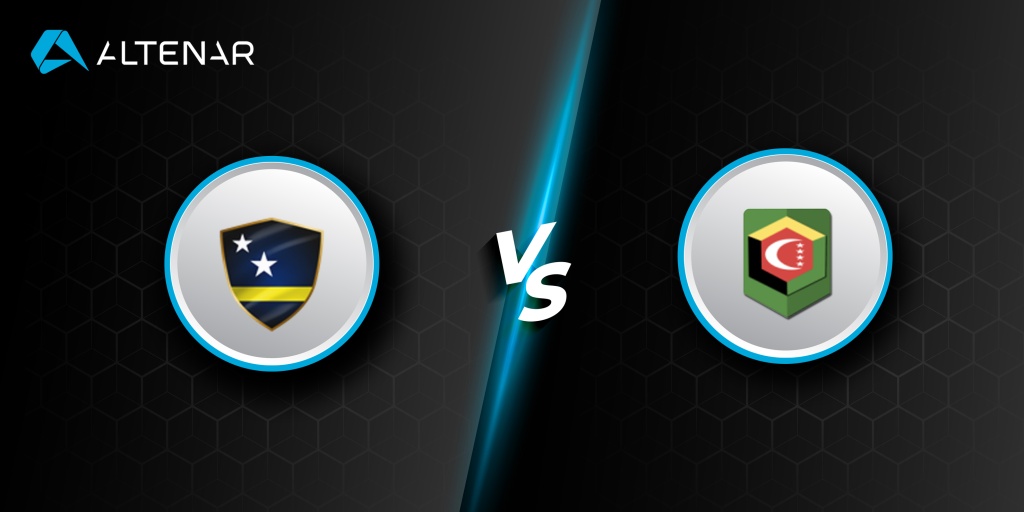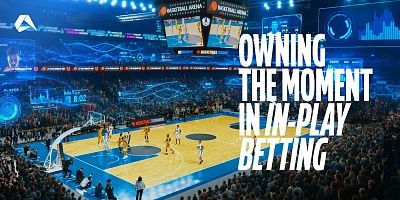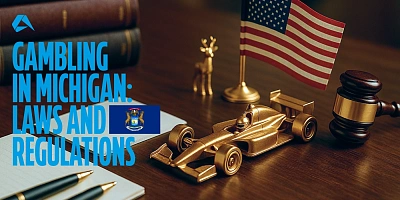Overview Anjouan License vs Curacao License - What are the Main Differences and Which One Should You Choose?
Historically, Anjouan and Curaçao have been favored iGaming licensing jurisdictions for operators seeking easier market entry and cost efficiencies due to their relaxed regulatory environments. However, Curaçao eGaming adopted stricter regulations from September 2023, establishing a new regulator, the Curaçao Gaming Authority (CGA), and no longer allowing sub-licenses. This shift has created a dilemma for operators choosing between the two.
The sources highlight several key differences post-2023. Curaçao is now repositioning itself as a trusted provider with comprehensive regulations, appealing to larger, established operators seeking enhanced credibility. It involves more rigorous financial and compliance checks, a robust infrastructure, and greater global recognition, though at higher costs and a slightly longer licensing timeline of approximately six weeks.
In contrast, Anjouan maintains a more relaxed regulatory environment with fewer strict audit requirements, appealing to those seeking operational freedom and lower barriers to entry. It offers lower initial costs, a faster four-week licensing process, and a significant financial incentive with zero Gross Gaming Revenue (GGR) tax, making it highly appealing for new operators or those on limited budgets seeking maximum economic efficiency. While its infrastructure support is more modest, Anjouan focuses on cost-effective market entry.
Ultimately, the optimal choice in 2024 depends on whether an operator prioritizes enhanced market reputation and comprehensive regulatory adherence (Curaçao) or cost-effectiveness, speed, and operational simplicity (Anjouan).
Historically, Anjouan and Curaçao are two licensing jurisdictions known for their relaxed regulatory environments, popular among iGaming operators seeking easier entry into international markets.
With greater global scrutiny, Curaçao eGaming has now adopted stricter licensing regulations to enhance the credibility and integrity of its legal framework.
This change has created a dilemma for some iGaming operators in choosing between a Curaçao eGaming license and the emerging Anjouan license.
This article explores the differences between the two to help operators make informed decisions that align with their business goals and operational strategies.
Licensing Jurisdictions Overview
Securing a gambling license in highly regulated jurisdictions like the US, UK, and Malta can be challenging, particularly for smaller operators with limited budgets.
For this reason, Anjouan and Curaçao have long been favored options for new operators seeking to make an impact in iGaming due to their straightforward application processes, lenient gambling laws, and cost efficiencies. However, changes to Curaçao’s licensing framework in September 2023 marked the start of a pivotal shift toward tighter regulation to align with international standards and improve credibility.
The overhaul will make obtaining a Curaçao gaming license more difficult beyond 2024, leaving many new and existing operators to consider other options. Many iGaming professionals see Anjouan as an optimal alternative to fill the void in the market, providing significant benefits to the same business demographic that Curaçao historically served.
A brief introduction to Anjouan as an iGaming jurisdiction
Anjouan, an island within the Comoros archipelago in the Indian Ocean, has gained recognition as one of the top emerging license jurisdictions in recent years.
The island's iGaming ambitions began in earnest in 2005 with the establishment of the Anjouan Betting and Gaming Board (ABGB), which came to prominence to address the island’s economic challenges by attracting foreign investment.
Its cost-effective and straightforward approach to licensing, combined with changes and uncertainty in other global jurisdictions like Curaçao, has made Anjouan an increasingly popular option for iGaming operators looking for stability and reduced overhead.
A brief introduction to Curaçao as an iGaming jurisdiction
Curaçao is a constituent country of the Netherlands located in the Caribbean islands, which has acquired over 25 years of experience offering globally recognized iGaming licenses.
The territory has been a significant player in the iGaming industry since 1996 when it first offered gambling licenses that simplified applications and minimized operational costs, which it achieved due to its unique status. As an independent Dutch territory, Curaçao can leverage many of the benefits of European membership without high taxation.
Historically, Curaçao eGaming has become a favored option for hundreds of iGaming operators who want a license that covers all forms of digital gambling entertainment without a substantial investment. However, with new changes to be implemented, Curaçao is now repositioning itself as a trusted provider with credibility that will appeal to larger established operators.
Key Differences between Anjouan and Curaçao Gaming Licenses
Until the recent regulatory changes, few fundamental differences existed between Anjouan and Curaçao licenses. After all, both provide single license coverage focusing on online gambling activities for iGaming operators wishing to target international markets. Moreover, both jurisdictions offer low-cost licensing solutions with tax advantages and straightforward application processes compared with other options. Altogether, the benefits of this type of license enjoyed broad appeal to startups.
However, the repositioning of Curaçao eGaming has introduced a few notable differences, particularly surrounding the regulatory environment and market access.
Regulatory Environment and Audits
One of the most significant changes announced in 2023 in Curaçao was the establishment of a new regulator — the Curaçao Gaming Authority (CGA) — to overhaul the current licensing system. Under the new system, the CGA will be the only body to grant licenses, and master licensees will no longer be able to issue sub-licenses.
iGaming operators must follow tighter guidelines in responsible gambling policy and meet rigorous financial stability, competence, and integrity standards with ongoing audits and compliance checks.
On the other hand, Anjouan continues to maintain a more relaxed regulatory environment that does not impose strict audit requirements. Consequently, the jurisdiction continues to appeal to iGaming operators seeking fewer compliance checks with easier market access and lower barriers to entry, offering a balance between license credibility and operational freedom.
Market Access and Reputation
Both licenses allow operators to provide and promote a full range of online gambling games and activities, including casino games, sports betting, bingo, lotteries, and poker.
Similarly, license holders have broad access to international markets. However, there are notable exceptions in market access since some countries require operators to obtain a national license to offer gambling services legally to residents.
General exceptions for both licenses include, but are not limited to, the UK, USA, Australia, Austria, Canada, France, Italy, Spain, Netherlands, and Sweden.
However, operators with a Curaçao license may have more freedom to operate in gray markets where online gambling is neither fully regulated nor explicitly illegal.
On the world stage, Curaçao has more recognition than Anjouan, which can make forming B2B relationships with payment providers, game developers, and other services crucial to make operations easier.
Speed and Timeline to Obtain Licenses
Anjouan and Curaçao both offer a fast licensing process compared to many established licensing authorities worldwide. Typically, it can take six weeks to obtain a Curaçao iGaming license and as little as four weeks for an Anjouan license, assuming that documents are prepared and submitted correctly.
Steps to Obtaining a Curaçao iGaming License
1. Company Formation: The first step is establishing a company in Curaçao. Only companies registered in Curaçao can apply for a gaming license.
2. Prepare Application: Submit information about the company, owners, and operators to demonstrate credibility and financial stability.
3. Compliance Check: Ensure compliance with anti-money laundering (AML) policies, know your customer (KYC) procedures, and standards for game fairness and transparency.
4. Local Representative: Appoint a local representative or agent in Curaçao who will handle communications with the local authorities and facilitate the licensing process.
5. Technical Audit: Undertake a technical audit of the gaming systems and software to ensure compliance with regulatory standards for fairness and security.
6. Submit the application: Along with all required documents and the non-refundable application fee to the Curaçao eGaming Licensing Authority.
7. Review and Issuance: The regulatory authority may request further information during review. If the application is successful, Curaçao will issue the gaming license.
9. Ongoing Compliance: After obtaining the license, operators must adhere to ongoing compliance requirements, including regular financial reporting and audits, maintaining operational standards, and adhering to any changes in legislation or regulations.
Note: Thorough preparation and compliance are crucial to avoid delays or issues in obtaining the license.
Steps to Obtaining an Anjouan iGaming License
Step 1: Check the suitability of key individuals, confirming their impeccable status and the absence of criminal records.
Step 2: Pay registration and related fees.
Step 3: Submit the application form and documents. Send documents, including a business plan with proof of domain ownership, to the Anjouan Banking and Gaming Board (ABGB).
Step 4: Technical audit. Testing and certification for RNG of games developed in-house to ensure compliance with AML and responsible gaming policies.
Step 5: Review and Issuance. The ABGB reviews the application according to its standards and issues a one-year license if all requirements are satisfied.
Step 6: Payment of the annual license fee. Once an annual license is obtained, the licensee has the option to renew annually.
Step 7: Ongoing compliance and reporting. Operators must adhere to ongoing regulatory requirements, including regular reporting on financial and gaming activities and compliance with regulatory standards or requirement updates.
Note: Thorough preparation and compliance are crucial to avoid delays or issues in obtaining the license.
Cost Comparison
Anjouan and Curaçao offer cost-effective solutions for acquiring and maintaining a gambling license compared to most other licensing options available.
Of the two, Anjouan offers lower initial costs with its streamlined modern approach to regulation and compliance, making it an appealing option for new operators looking for fast market entry on a limited budget.
While remaining competitive compared with other jurisdictions, the costs associated with a Curaçao eGaming license are higher than those of Anjouan. With new regulations coming into force, the cost of obtaining and renewing annual licenses will be higher, given the additional expenses involved with adhering to more rigorous and detailed standards.
Taxation and Financial Incentives
Curaçao is known for its attractive corporate tax structure. It imposes a maximum rate of 2% on a gaming operator's net profits. Furthermore, no VAT is applied, enhancing its appeal to operators seeking cost efficiencies.
Companies aiming to establish a presence in Curaçao can benefit from the Investment Tax Incentive program. It offers a tax exemption on most taxes for up to 10 years and will soon be available to the online gaming sector. Companies must invest at least $3 million to qualify and employ at least 10 local staff.
Anjouan also offers a beneficial tax regime with low corporate taxes and no VAT. A distinctive financial incentive is the lack of a Gross Gaming Revenue (GGR) tax, meaning license holders pay zero tax on gross profits.
While both jurisdictions offer appealing financial incentives resulting in substantial savings, Anjouan’s GGR tax exemption tips the scales in their favor for iGaming operators seeking maximum economic efficiency. This is particularly true where the volume of transactions is high.
Technical and Infrastructure Support
With considerable experience in the gaming industry, Curaçao eGaming has the time-tested experience that Anjouan lacks. Operators can expect access to a well-connected network of professional expertise and infrastructure, including payment systems, hosting solutions, and ancillary services.
Furthermore, support systems for Curaçao license holders are highly developed, providing licensees with a streamlined approach to platform operations.
The provision of technical infrastructure for Anjouan license holders is more modest. While it provides essential regulatory oversight, it lacks the foundational infrastructure of Curaçao. The support and services provided under Anjouan’s jurisdiction are comparatively limited, too, which may pose challenges for new platforms wishing to access the latest technologies and scale operations.
Summary & Key Takeaways
Here is a snapshot of the main differences between an Anjouan license vs a Curaçao license in 2024:
| Curaçao | Anjouan | |
|---|---|---|
| Regulation | Comprehensive | Low |
| Market Access | Slightly Better | Wide International Access |
| Timeframe | 6 weeks | 4 weeks |
| Cost | Low | Higher |
| Taxation | 2% - No VAT | 0% GGR - No VAT |
| Infrastructure | Robust | Basic |
Which License Should You Choose in 2024
Traditionally, Curaçao and Anjouan appeal to new entrants seeking a straightforward path to securing a cost-efficient gambling license with a less complex regulatory framework than other licensing authorities.
While this remains true for Anjouan, Curaçao’s shift toward a more tightly regulated gambling environment points toward a desire to fall in line with mainstream global standards.
These changes will increase operational and ongoing costs for new and existing license holders, not least for existing licensees who previously held one license with the ability to issue sub-licenses to their white-label platforms. Each must now acquire an independent license, which will significantly raise costs.
Nonetheless, the shift presents an opportunity for operators wishing to enhance market reputation and trust, making it more agreeable for serious operators who want to improve their reputation and maintain extensive international market access.
Still, for some, the advantage of holding a Curaçao eGaming license comes into question. Operators must analyze the impact of operational costs and fees in connection with marketing and operational strategy.
Navigate Regulatory Changes Effortlessly
This situation highlights the importance of choosing the most suitable license and staying informed about the regulatory landscape to ensure long-term success.
As the industry evolves with these regulatory enhancements, Altenar remains at the forefront of iGaming software solutions that seamlessly integrate with the new regulatory demands.
Contact us today to discover how you can leverage Altenar’s iGaming solutions to focus on marketing efforts and growth.
Disclaimer
This information is not intended to be legal advice and is solely extracted from open sources. It should not be relied upon as a substitute for professional legal advice, and Altenar does not accept any liability in relation to its use.













